-
About
- About Listly
- Community & Support
- Howto
- Chrome Extension
- Bookmarklet
- WordPress Plugin
- Listly Premium
- Privacy
- Terms
- DMCA Copyright
- © 2010-2025 Boomy Labs

 Love It Loud
Love It Loud
Listly by Love It Loud
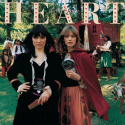
While Dreamboat Annie proved to be a confident first album it would be their sophomore release, Little Queen, that would show Heart at the peak of their talents. Released in 1977, the record would see the band working as a whole on the writing of the songs, with Ann and Nancy Wilson each only wring one song on their own. The album’s most known song was Barracuda, which boasted a guitar riff worthy of Led Zeppelin or Black Sabbath. Yet the tone of Little Queen would shift from gritty classic rock to acoustic with songs like Dream of the Archer and Love Alive. Those who had discovered Heart during the late 1980s would find it hard to believe that this album was by the same band, albeit with a different line-up.
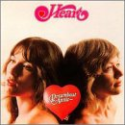
There is something about Dreamboat Annie, first released in 1976, that has a purity and rawness that Heart would never achieve again. Perhaps it is because it is their debut album and the band was untainted by the music industry. Working alongside producer Mike Flicker (who would also oversee their second record), Ann and Nancy Wilson were the key songwriters, with bandmates Steve Fossen and Roger Fisher only contributing to one song, Sing Child. The album is still best known for the hit singles Magic Man and Crazy on You and saw Heart showing their love of folk and classic rock.

It seemed highly unlikely, or even impossible, that Heart would ever return to the band they had once been during the mid-1970s, particularly after their reinvention during the following decade with their radio-friendly power ballad hits Never and Alone, but the unexpected happened in 2010 when they made their long-awaited comeback with one of their strongest offerings, Red Velvet Car. Commencing with the classic opening track There You Go, the album would be filled with some of the band’s best material, including WTF and Hey You. Two key collaborators on Red Velvet Car were Craig Bartock and guitarist Ben Mink, both of whom would help to co-write many of the tracks.
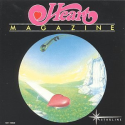
Producing a follow-up to their seminal classic Little Queen was no mean feat but Heart succeeded in producing an album that, while not quite as strong, was still a worthy continuation. Despite difficulties with the band’s record label during the recording of Magazine, the album was yet another triumph and saw Ann and Nancy Wilson co-writing six of the eight songs, while two live tracks would include a classic rendition of I’ve Got the Music in Me.
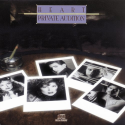
In some ways 1982′s Private Audition could be considered the end of the ‘classic era’ Heart, as their follow-up, 1983′s Passionworks, would mark the band’s transition into power ballad territory. While not reaching the same heights as their 1970s albums, Private Audition is arguably their most overlooked album and served as the swan song for bassist Steve Fossen and drummer Michael DeRosier. Still gritty in places and showing their hard rock and blues roots, the album’s highlights included opening number City’s Burning. For the remainder of the decade Fossen and DeRosier’s positions were filled by Mark Andes and Denny Carmassi, respectively.

Although the cracks had begun to show as Heart struggled to remain relevant in an era of disco, punk and new wave, 1980′s Bebe le Strange was still a strong offering from the band, despite the departure of guitarist Roger Fisher. While far from their strongest album, Bebe le Strange still offered several classic songs, from the title track and Down on Me to the hit single Even it Up. It would be their first album not to achieve Platinum in the United States, something they would not manage again until the Heart album five years later. Four of the songs would be featured on the band’s first greatest hits album, which was released the same year.

While 1993′s Desire Walks On had not been a true return to form, it had finally allowed the Wilson sisters to once again write their own material for the first time in a decade. Their next release, Jupiters Darling, followed in 2004, after countless greatest hits compilations, and saw the band turning their back on the power ballads that had diluted their late 1980s work and adopting a rawer sound, more akin to their earlier output. The album would also see contributions from Gilby Clarke and Alice in Chains‘ Jerry Cantrell.
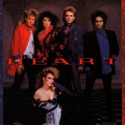
Following a commercial slump during the early 1980s, the Wilson sisters regrouped with the line-up that had recorded their 1983 album Passionworks for what was to become their long-awaited comeback. Their self-titled record was the first of three that would feature outside writing contributions, with both Ann and Nancy Wilson given little creative input. The most significant writer was Jim Vallance, who had carved out a successful career with Bryan Adams, while Holly Knight would also play a significant role in the composing of the songs. Heart would be the first album by the band to produce five hit singles, including Never and These Dreams.
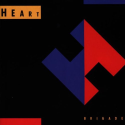
In 1990, three years after the success of Bad Animals, Heart returned with another hit single, All I Wanna Do Is Make Love to You. The song, written by long-time Def Leppard and AC/DC producer Robert John “Mutt” Lange, set the tone of the album, Brigade, which would become another best seller for the band. Lange also co-wrote the opening track, Wild Child, which was first released a year earlier by British rock group Romeo’s Daughter. Once again lacking the rawness of their earlier material, Brigade saw the return of contributing songwriters Diane Warren and Billy Steinberg. Only four of the thirteen songs would be co-written with Ann and Nancy Wilson.
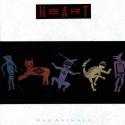
Following a spectacular comeback – at least in the commercial sense – with their eponymous 1985 album, Heart took a step back from composing in order to allow professional songwriters to help craft radio-friendly hits, much like as had happened with both Aerosmith and Alice Cooper. The result was Bad Animals, a collection of ballads and watered-down rock songs, centred around their signature tune Alone. Among the songwriters contributing to the record were Diane Warren (who would later co-write the Michael Bolton tune How Can We Be Lovers?) and Billy Steinberg, best known for his work on Madonna’s Like a Virgin and The Bangles‘ Eternal Flame.
